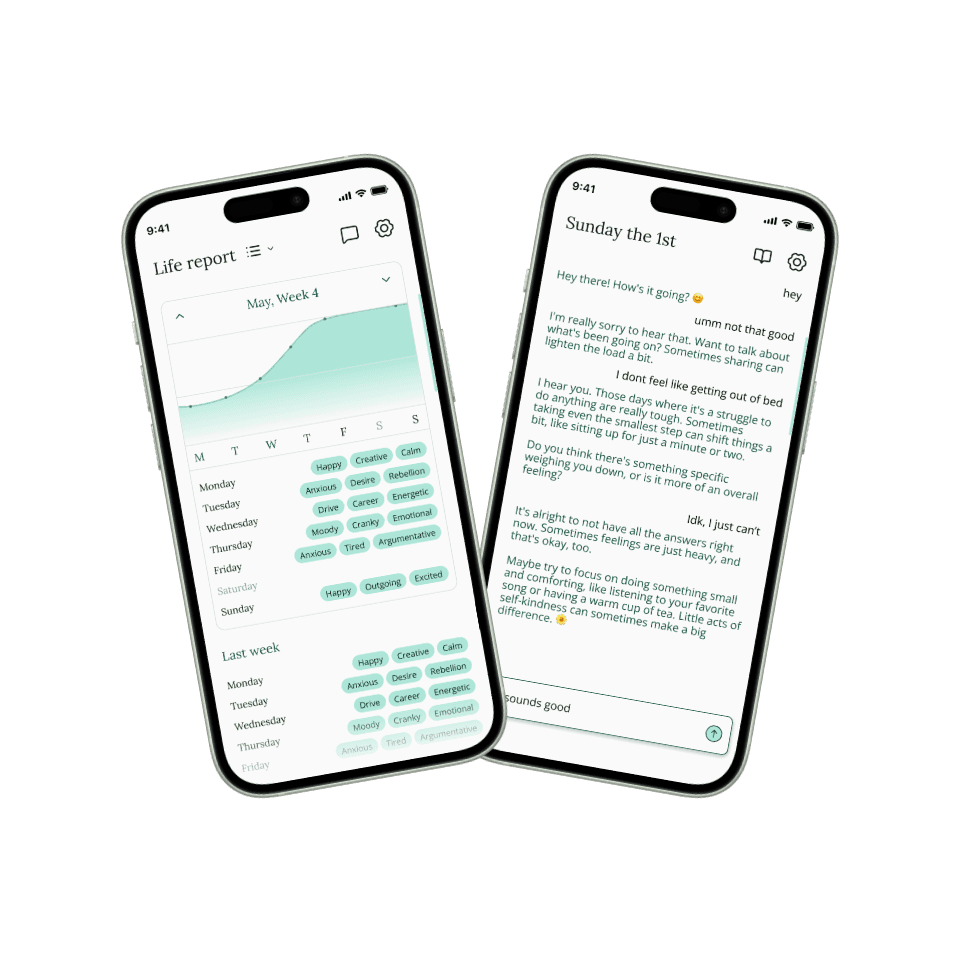
How To Make A Therapy Session Effective
How To Make A Therapy Session Effective
Aug 15, 2024
Aug 15, 2024
Therapy can be a powerful tool for personal growth and healing, but it's not always easy to navigate. As someone who's been in therapy for several years, I've learned that making the most of each session takes some effort and strategy. Here are six mini tips that have helped me turn my therapy sessions from frustrating to genuinely productive.
1. Keep a Running List of Topics
One of the biggest challenges I faced was remembering what I wanted to discuss once I was actually in the therapy room. The solution? I started keeping a list on my phone throughout the week.
How to do it: Whenever something comes up that you think might be worth exploring in therapy, jot it down quickly. It doesn't have to be detailed – just enough to jog your memory later.
2. Be Honest About Your Struggles with the Process
For a long time, I felt like I had to be a "good client" and magically know how to do therapy effectively. Then I realized that my therapist is there to help with exactly these kinds of challenges.
How to do it: Tell your therapist if you're having trouble bringing up certain topics or if you're unsure how to use your session time effectively. They can offer strategies tailored to your specific needs.
3. Set an Agenda at the Start of Each Session
I used to wait for my therapist to guide the entire session, but I've found that taking a more active role leads to more productive conversations.
How to do it: At the beginning of your session, try saying something like, "I was hoping we could talk about X, Y, and Z today. Does that sound okay?" Most therapists appreciate having a starting point.
4. Balance Your Needs with Your Therapist's Expertise
While it's important to address the issues that feel most pressing to you, remember that your therapist has professional training and insight that can be valuable.
How to do it: Be open about what you want to work on, but also be willing to explore topics or techniques your therapist suggests. It's a collaborative process.
5. Learn to Redirect the Conversation
Sometimes therapy sessions can veer off course. I've learned that it's okay – and often necessary – to steer the conversation back to what feels most important.
How to do it: If you find the discussion has strayed from what you wanted to focus on, try saying, "This is interesting, but I'm wondering if we could go back to discussing [your topic]."
6. Give the Process Time
It's natural to want immediate results, but building a productive therapy relationship takes time. In my experience, it took several sessions before my therapist and I really found our rhythm.
How to do it: Try to commit to at least 5-6 sessions before evaluating whether the therapy or therapist is a good fit for you. Use this time to practice the other tips and find your comfort zone in therapy.
Remember, therapy is a unique journey for everyone. These tips have worked well for me, but don't be afraid to adapt them or find your own strategies. The most important thing is to be engaged in the process and communicate openly with your therapist. With time and effort, you can turn your therapy sessions into a powerful tool for personal growth and healing.
Therapy can be a powerful tool for personal growth and healing, but it's not always easy to navigate. As someone who's been in therapy for several years, I've learned that making the most of each session takes some effort and strategy. Here are six mini tips that have helped me turn my therapy sessions from frustrating to genuinely productive.
1. Keep a Running List of Topics
One of the biggest challenges I faced was remembering what I wanted to discuss once I was actually in the therapy room. The solution? I started keeping a list on my phone throughout the week.
How to do it: Whenever something comes up that you think might be worth exploring in therapy, jot it down quickly. It doesn't have to be detailed – just enough to jog your memory later.
2. Be Honest About Your Struggles with the Process
For a long time, I felt like I had to be a "good client" and magically know how to do therapy effectively. Then I realized that my therapist is there to help with exactly these kinds of challenges.
How to do it: Tell your therapist if you're having trouble bringing up certain topics or if you're unsure how to use your session time effectively. They can offer strategies tailored to your specific needs.
3. Set an Agenda at the Start of Each Session
I used to wait for my therapist to guide the entire session, but I've found that taking a more active role leads to more productive conversations.
How to do it: At the beginning of your session, try saying something like, "I was hoping we could talk about X, Y, and Z today. Does that sound okay?" Most therapists appreciate having a starting point.
4. Balance Your Needs with Your Therapist's Expertise
While it's important to address the issues that feel most pressing to you, remember that your therapist has professional training and insight that can be valuable.
How to do it: Be open about what you want to work on, but also be willing to explore topics or techniques your therapist suggests. It's a collaborative process.
5. Learn to Redirect the Conversation
Sometimes therapy sessions can veer off course. I've learned that it's okay – and often necessary – to steer the conversation back to what feels most important.
How to do it: If you find the discussion has strayed from what you wanted to focus on, try saying, "This is interesting, but I'm wondering if we could go back to discussing [your topic]."
6. Give the Process Time
It's natural to want immediate results, but building a productive therapy relationship takes time. In my experience, it took several sessions before my therapist and I really found our rhythm.
How to do it: Try to commit to at least 5-6 sessions before evaluating whether the therapy or therapist is a good fit for you. Use this time to practice the other tips and find your comfort zone in therapy.
Remember, therapy is a unique journey for everyone. These tips have worked well for me, but don't be afraid to adapt them or find your own strategies. The most important thing is to be engaged in the process and communicate openly with your therapist. With time and effort, you can turn your therapy sessions into a powerful tool for personal growth and healing.
View more insightful blog articles
Today's tune



Track your mental health and get support between sessions with Verba
Learn more

Track your mental health and get support between sessions with Verba
Learn more

Track your mental health and get support between sessions with Verba
Learn more

Advait Naik
Advait is the founder of Verba and is working at the intersection of psychology, design and technology to create Verba, an app that helps us be more self aware through clarity and communicate our life in therapy